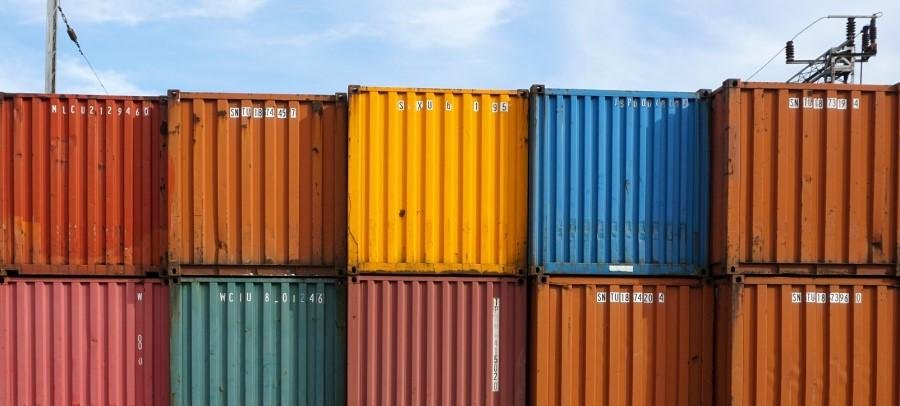EU sanctions against Russia

The European Union (EU) has announced significant new sanctions and export control regulations related to Russia. The first package of sanctions was imposed on February 23, 2022, the second on February 25, 2022. Further sanctions have been adopted on February 28, 2022, March 2, 2022 and March 9, 2022.
These restrictions may impact companies doing business in Russia and in sanctioned regions. To comply with the new regulations, action may be required.
I. First package (February 23, 2022)
- Targeted sanctions: The EU extended the existing sanctions against Russia by including all the 351 members of the Russian State Duma and 27 high profile individuals and entities.
- Restrictions on economic relations with the Donetsk and Luhansk oblasts: This concerns trade between the EU and the Donetsk and Luhansk oblasts, and includes an import and export ban, trade and investment restrictions and a prohibition on the supply of tourism services.
- Financial sanctions: A prohibition on financing the Russian Federation and its government.
II. Second package (February 25, 2022)
Individual sanctions
- Asset freeze: The EU has frozen the assets of President Putin, the Russian Minister of Foreign Affairs and other individuals (e.g. members of the National Security Council of the Russian Federation).
Economic sanctions
- Financial sanctions: Further expansion of the existing financial sanctions in order to prevent Russian access to the most important capital markets.
- Energy sector: Prohibition on the sale, supply, transfer or export of specific goods (and related services) and oil refining technologies to Russia.
- Transport sector: An export ban covering goods and technology in the aviation and space industry, as well as a prohibition on the provision of insurance and reinsurance and maintenance services related to those goods and technology. This includes a prohibition on the provision of related technical and financial assistance.
- Technology sector: Export restrictions on exports of dual-use goods and technologies (e.g. semiconductors and other cutting-edge technologies).
- Visa policy: Diplomats, Russian officials and businesspeople will no longer be able to benefit from visa facilitation provisions allowing privileged access to the EU. Ordinary Russian citizens are not affected by these measures.
III. Third package (February 28, 2022)
- A ban on transactions with the Russian Central Bank.
- A ban on the overflight of EU airspace and on access to EU airports by Russian carriers.
- An additional 26 persons and one entity were added to the sanctions lists.
IV. Fourth package (March 2, 2022)
- Seven Russian banks were excluded from SWIFT. It concerns: Bank Otkritie, Novikombank, Promsvyazbank, Rossiya Bank, Sovcombank, Vnesheconombank (VEB), and VTB Bank.
- A ban was introduced on investing, participating or otherwise contributing to future projects co-financed by the Russian Direct Investment Fund.
- Further, selling, supplying, transferring or exporting euro banknotes to Russia or to any natural or legal person or entity in Russia is now also banned by the EU.
- Suspension of the broadcasting activities in the EU of media outlets Sputnik and Russia Today.
V. Fifth package (March 9, 2022)
- new restrictions on the export of maritime navigation and radio communication technology, adds Russian Maritime Register of Shipping to the list of state-owned enterprises subject to financing limitations and introduces a prior information sharing provision for exports of maritime safety equipment.
- Extends the exemption relating to the acceptance of deposits exceeding €100.000 in EU banks to Swiss and EEA nationals.
- The EU confirmed the common understanding that loans and credit can be provided by any means, including crypto assets, as well as further clarified the notion of “transferable securities”, so as to clearly include crypto-assets, and thus ensure the proper implementation of the restrictions in place.
- Furthermore, an additional 160 individuals were added to the sanctions lists.
VI. US Sanctions
The United States (US) has also implemented expanded export controls and sanctions against Russia. It is important to note that the US restrictions may also apply to certain non-US made items, meaning that items manufactured outside the US may be subject to these new US requirements. For example, products manufactured in the EU but for which US components/technology are used.
Recommended next steps
We recommend that businesses dealing with Russian entities and individuals assess whether ongoing projects and planned transactions will be impacted by the recent sanctions imposed by the EU and other jurisdictions. For example, company activities need to be assessed to determine whether EU and/or US restrictions apply to sales, support, procurement or other activities. In addition, risk assessments should be performed or updated to reflect recent events and additional trade restrictions.
It should be noted that the overview above concerns the restrictive measures in place at the time of writing of this article. Depending on further developments, it is possible that the EU, the US and other jurisdictions will impose further restrictive measures in the future.